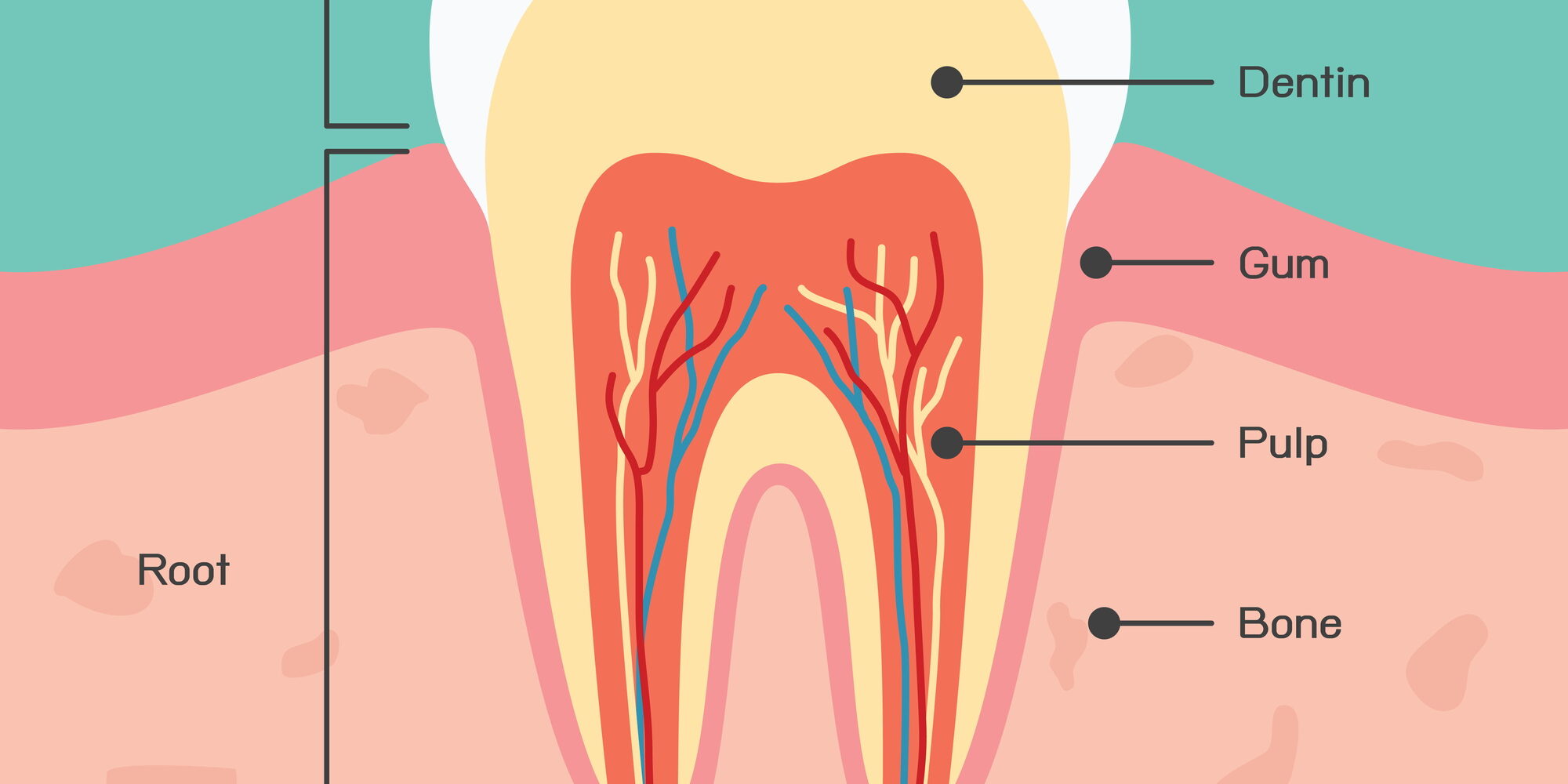Root canal treatment is performed on a tooth with internal infection, specifically an abscess. Teeth with cracks or deep cavities are vulnerable to serious bacterial infection that can be harmful to your oral health, as well as your general health.
Underneath the hard outer layer of enamel, teeth have a soft layer of dentin, then a core in the center. This core houses pulp, a soft substance made of nerves and connective tissues. Pain occurs when the nerve is under pressure, which can be caused by increasing growth of bacteria within the pulp.
If you have a toothache, seek dental care as soon as possible. Usually, throbbing, deep pain on one side of the face is a symptom of an abscess. The discomfort may spread to the ear and throughout the jaw. Sometimes patients with a tooth abscess are more uncomfortable when lying down, and the pain can interfere with sleep. Discomfort increases over time as the infection grows.
Dr. Matthew L. Bridges performs root canal therapy (RCT) to remove bacteria from the core of infected teeth. The goal of root canal treatment is to first eradicate bacteria, and second to keep a tooth from becoming reinfected. Undergoing a root canal may allow you to retain your natural tooth so that extraction isn’t necessary.
We administer local anesthesia, so you will remain comfortable during the procedure.
Tips for Root Canal Recovery
Your mouth may be numb for a couple of hours after you leave Chisholm Trail Smile Center. Do not eat anything until the numbness wears off.
When your mouth is no longer numb, it may hurt because of swelling from the root canal treatment. This is normal and pain can be managed with over-the-counter pain relievers.
You can help reduce the swelling by putting an ice pack on the side of your face where treatment was done. You shouldn’t have to do this for more than 24-48 hours. Do ten minutes on, ten minutes off with the ice.
Sleep with your head elevated for two or three days. This will help fluids drain, which reduces inflammation.
For the first few days after RCT, eat soft, healthy foods that don’t require you to chew much. Smoothies, yogurt, mashed potatoes, and cottage cheese are good options. Soup and oatmeal or grits are also good choices, but do not eat them until they’ve cooled down. If food is too hot, it will irritate the treatment site.
Do not smoke or vape (now is a good time to quit) during recovery. Smoking and vaping can delay the healing of your root canal treatment.
Avoid Strenuous Exercise
You can take leisurely walks after root canal treatment, but avoid strenuous exercise for about a week.
Types of exercise you should hold off on include running, basketball, aerobics, jogging, and weight training. These activities can cause your wound to bleed and ache.
Get Adequate Rest
When you’re sore and uncomfortable, you are more stressed, and stress interferes with rapid recovery from any procedure or illness. Sleeping and relaxing after root canal treatment will reduce stress to help you heal. If you can take a day or two off of school or work, do so! However, if a day off is not an option, just adhere to the aftercare instructions above and take over-the-counter NSAIDs (ibuprofen or acetaminophen) as directed on the bottle to manage pain and swelling.
Be Aware of How You Feel
With proper care, the pain from your root canal treatment should subside within 48 hours, though soreness may linger. If you are feeling a lot of pain three days after your procedure, contact our office. Side effects are rare, but possible. If you develop an infection, Dr. Bridges will retreat your tooth or refer you to a trusted endodontist for specialist care.
Finish Strong
In most cases, patients have a temporary crown placed after RCT. The crown will be replaced with a permanent restoration after a few weeks. Our dental lab will fabricate a custom crown to fit over the affected tooth. If you prefer, instead of precious metal, porcelain or zirconia can be used to craft a natural-colored permanent crown.
Root Canal Treatment at Chisholm Trail Smile Center
Trust your root canal treatment and effective management of side effects to Dr. Matthew L. Bridges. Using the most current methods and technologies, he can make your root canal treatment an easy experience. Contact our friendly team today at (580) 255-4880.






